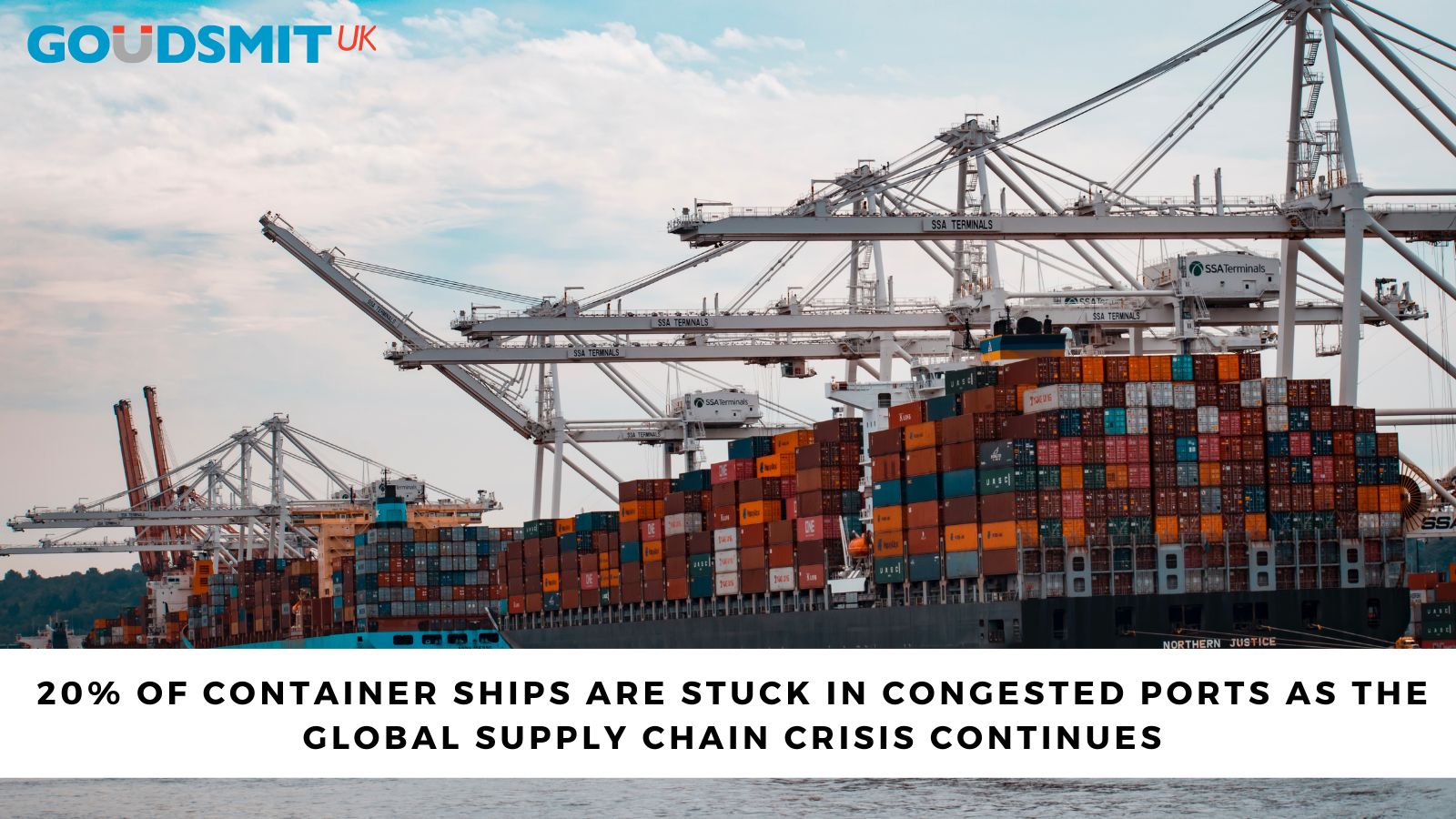The global supply chain crisis continues as latest reports show 1 in 5 container ships are stuck in congested ports. China’s recent lockdowns, the Russian invasion of Ukraine and other issues are causing even lengthier delays with congestion at ports.
China lockdowns and the truck shortage causing congestion at ports
On top of the growing congestion at ports around the world, many truck drivers have been unable to reach ports in China to collect containers due to travel restrictions and COVID testing requirements. Trucker shortages are delaying finished products getting to the ports and raw materials being delivered to factories. Containers are also piling up as a result of the truck shortages.
Although some factories have been able to restart production, many workers are confined to quarantine at home. Any factories that have been able to reopen face staff shortages and difficulty in securing transport to take the goods in and out of ports.
Congestion at ports
Nearly 20% of container vessels globally, approximately 1,826 ships, are currently waiting outside congested ports, according to a survey published by Windward. Outside of the world’s biggest container port in Shanghai, there are over 384 vessels waiting, according to most recent data from S&P Global Market Intelligence.
Congestion at ports during the COVID-19 pandemic has contributed to a significant rise in freight rates since 2020. China’s latest COVID lockdowns, sparked by the country’s zero-tolerance COVID strategy, are now adding even more headwinds to global supply chains. However, logistic experts believe there’s a chance of recovery on the horizon. Although, they’ve further warned that a flood of containers could clog United States and European ports when the accumulated cargo vessels start sailing.
Russian/Ukrainian War
The war in Ukraine has caused a further increase in port blockages and supply chain congestion globally. This is a result of many ports having Russian embargoed cargo taking up on-dock space.
Russia’s invasion of Ukraine continues to escalate daily, threatening further disruptions which are likely to cause impacts that will continue to ripple globally throughout the year.
Global inflation set to increase
Daejin Lee, associate director at S&P Global Market Intelligence, explained that the situation in Shanghai will push global inflation higher this year.
Lee also noted that last year’s inflation was driven by two key factors:
- Supply shortages of key parts
- Record high container freight rates
Both of these issues remain in 2022, alongside the Russian invasion of Ukraine. The invasion has driven global inflation further, driving up prices for energy and other commodities.
Additionally, China’s port congestion is likely to cause an increase in consumer process much faster than expected, noted Lee.
Maersk have said that freight rates will stay elevated due to the persisting supply chain pressures.
Goudsmit UK
Goudsmit UK continue to communicate with all customers proactively. We manage expectations and provide multiple solutions, allowing customers to make conscious decisions when balancing cost versus supply chain risk.
We continue to advise all customers at the point of quotation and order confirmation of the extended lead times. Therefore, allowing any freight delays to be factored in when planning. We would request that you review your current requirements and advise of any issues asap. We’d also urge you to review your requirements for 2022 – 2023 at the earliest opportunity.
Whilst freight delays are unavoidable at this time, we’re working with our customers by holding larger volumes of UK stock for longer. We would encourage that a minimum of 8-10mths of buffer stock is considered when re-ordering new production. In order to help reduce the impact of freight delays and lessen the potential requirement for costly airfreight.







